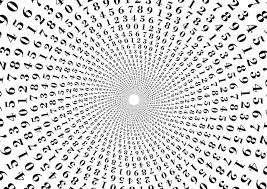ItCouldHappen
20 09, 15 10:45 Filed under: MorningMissive

It could happen to you”
So starts Johnny Burke’s haunting lyric to Jimmie Van Heusen’s remarkable melody. Of course they intended this song to be interpreted as a love song, and it works very well as a love song, but Burke cleverly employs the old ambiguity, playing off the peril love implies—the peril life itself entails.
“Don't count stars or you might stumble
Someone drops a sigh and down you tumble”
Burke offers no easy out, either. Wishing on stars won’t provide any protection. Love might turn on a simple sigh; life, no less so. The tone screams precarious. He is not in control. Neither are we.
“Keep an eye on spring, run when church bells ring
It could happen to you”
Anyone who’s fallen in love recognizes the absolute absence of self determination in the experience. We don’t refer to it as ‘falling’ for nothing. We no more throw ourselves into love than we carefully pre-plan our existence. Later, after we’ve clearly succeeded, we can tout our marvelous master plan, scrupulously omitting the parts chance contributed. Until then, we’re flotsam and we should know it. Anyone diagnosed with some dreadful disease might as well find themselves falling in love, for all the voice they have in the matter. Tuesday, everything seems perfectly normal. Sometime Wednesday afternoon, the whole universe falls down some rabbit hole. It will never again be the same as it always seemed it always would ever be.
“All I did was wonder how your arms would be
And it happened to me”
Burke can’t resist offering a touch of causation, an explanatory story to resolve the otherwise randomness of this event. He owns the outcome because in his story, he created the result by simply wondering. I’m confident he really felt his contribution, if only because he really, really, really needed some explanation, some form of reason to condition the otherwise random shuffling. How could he possibly be the master of his universe without ascribing the outcome to something he actually did? How, indeed?
“Keep an eye on spring, run when church bells ring
It could happen to you
All I did was wonder how your arms would be
And it happened to me”
He finishes the story by revisiting where he started, creating a Möbius description, both circular and eternally one-sided. What else does he have to draw from? What else do any of us ever have? If we are the actor we believe ourself to be, we might choose hero or clown, victim or victimizer, but we must choose. Identity depends upon such convolutions, and thrives on them, but love as well as life seem to conspire to undermine whatever story we so carefully, however defensively, concoct. Falling in love, as Burke artfully implies, leads to a loss at least as great as the gain, as the marriage ceremony might even insist, two individuals melding into a single presence. There’s much to be lost in this transition, and the shift itself seems worthy of avoiding until, of course, it simply cannot be any longer avoided. Then it must be accepted.
Acceptance in this context amounts to a fighting word. It does not come gently and seems to elicit a forceful response. The perennial bachelor rails against losing his freedom. He shadow-boxes while insisting there’s a real opponent out there. Of course there is a real opponent, but it is most certainly him in unfamiliar guise, self-destruction suited up as self-preservation. No former self survives this encounter. Resistance amounts to whole-hearted support, but isn’t entirely futile.
This probably is the hardest as well as the most essential work any of us, even the least of us, are ever called to perform. And it is at essence a performance. Only those refusing to engage, those fleeing from the inevitable, fail, but even they merely fail by omission. There is no ‘out,’ no freer ride, no getting out of even this jail for free. It could happen to me. It could even happen to you.
I might even propose that it should happen, if only because it most inevitably will happen. Some will show up with a spot on their MRI. Others will fall in love a second or even a terribly inconveniencing third time. Both experiences as if unbidden, but both eliciting a story perfectly explaining the situation that started out having no terribly reasonable explanation. The universe will somehow regain her tenuous composure. What must happen will reacquire the aura of mere possibility and we will once again believe that it only possibly could happen, but not very deeply believe in that likelihood.
We will stay the uncharted course, preferring it to any one we could actually know. We will be careful or cavalier and still achieve the same result. We will feel as though we are driving or slink disaffected into the back seat, but the destination remains unchanged. We never forget the day we fall in love, however we sought or deflected the experience. In the same way, I imagine the universe never forgets the day one learns he will soon depart whatever universe he’s known to melt into the one he never could have possibly imagined until then. ItCouldHappenToYou.
©2015 by David A. Schmaltz - all rights reserved
blog comments powered by Disqus


